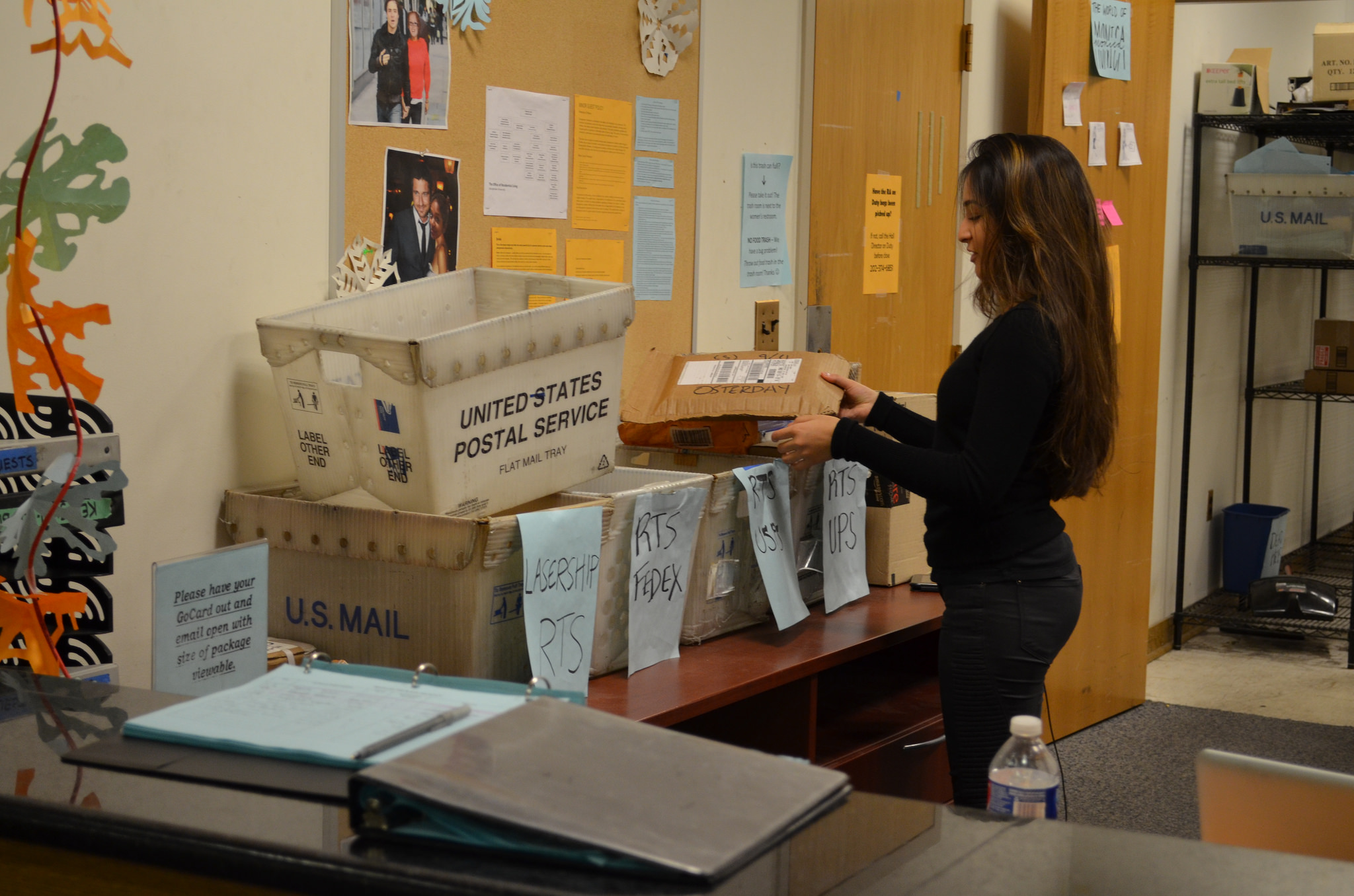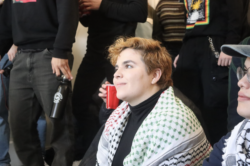University Auxiliary Services is considering centralizing mail services from campus-wide Residence Hall Offices (RHO) to a single location in the Leavey Center as early as Fall 2016. Student leaders, however, have concerns about what this plan could mean for disabled students and student workers.
“The university would like to consolidate the mail system, so instead of going to your building’s RHO to get a package, there would be one central location,” said Nicolette Moore (SFS ‘17), GUSA Secretary of Dining and Auxiliary Services. “You would get one box number and you would have it throughout your four years instead of changing.” Joelle Wiese, Associate Vice President for Auxiliary Business Services, could not be reached for comment.
The new centralized location would also act as more than a place to pick up mail and packages, Moore said. “People will also be able to mail things, so instead of having to go off campus to send your textbook back you will be able to mail stuff from campus,” said Moore. “It’ll also be like a print shop and so clubs will be able to make flyers and all kind of print materials, also I think there’s going to be a t-shirt making aspect.” Connor Maytnier (COL ‘17), GUSA Secretary of Residential Living described the centralized location as “more or less a Fedex-Kinko’s type of concept.”
Maytnier did express concern with the project’s direction, saying that “in my estimation there are many issues with the entire concept that just haven’t been resolved yet,” he said. “There would be a loss of student jobs. What they’re looking at, it’s not finalized, but whether they can eliminate all RHOs, most RHOs, they’re going to have to keep some limited capacities for keys and for maintenance. But, you will be losing a lot of RHOs.”
Stephanie Lynch, Assistant Dean for Residential Living, did explain that this project would not mean the end to RHOs, as “while RHOs distribute over 130,000 packages each year, there is still a need for RHOs including lockouts and equipment checkout,” she wrote in an email to the Voice. However, she said that “when centralized mail begins, we will have to examine our staffing and decide the best use of resources.”
Additionally, she said that a new RHO is to be opened in the Northeast Triangle, though this is unrelated to the centralized mail project. “This new RHO will result in relocation of services out of Darnall and Copley to NET (Northeast Triangle). Therefore, we may not need to hire as many staff as we have previously done for the academic years.”
GUSA Deputy Chief of Staff for Academics, Auxiliary Services, and Student Organizations Chris Fisk (COL ‘17) expressed a special concern for the loss of student jobs if the new system is implemented. “What happens to all the jobs? I think that’s the central concern, in my opinion, as a GSP [Georgetown Scholarship Program] Student, and as a work study employee,” he said. “One thing is helping the university’s bottom line and another thing is affecting student lives and a lot of students on campus work there and need the money to support themselves on campus.”
There is also concern about the accessibility of a centralized mailing location for disabled students. Ari Goldstein (COL ‘18), GUSA Secretary for Campus Planning, expressed these concerns, saying “If you have a centralized mailing location on campus, how do disabled students reach that location?” he asked. The university is considering delivery of packages for these students to their door, but Goldstein was still concerned for those that may only be temporarily disabled. “For temporarily disabled students, if you break your leg and are on crutches for a month, you don’t have permanently disabled status, how are you going to be reaching this centralized mail location? Even if you are fully able-bodied but have four big heavy packages and there’s ice on the ground and you have to walk back to your dorm, that might be far in Henle or LXR [and] you can slip and fall.”
Goldstein does support the idea in theory though. “I think it has cool potential, certainly, the way the administration has framed the proposal first is around a pedestrian friendly campus with less mail truck traffic on campus and second around the freeing up of space in residence halls. I think that has merit.”
Lack of student input in the decision making process is also a concern, Goldstein said. “There hasn’t been a consistent student presence in the conversations and that’s one of the issues we face at large in master planning,” he said. Maytnier, who has been working on the plan since November of 2014 also pointed out that “it was something that when I first came in was pretty much pitched as this is something that we’re going toward, it was not so much a should we do this.”
Fisk was concerned as well about the lack of a specific details in the plan. “I’m willing to support it but we all need [the administration] to be transparent,” he said. “If they can be transparent about their process and show us how it’s going to take care of, how the jobs are going to be okay and that this may provide services to students that we haven’t imagined before, and if it’s going to reimagine space in the residence halls that maybe students would like, then it could be a project we could be in agreement on. But, the fact that there’s such a lack of transparency is concerning.”





